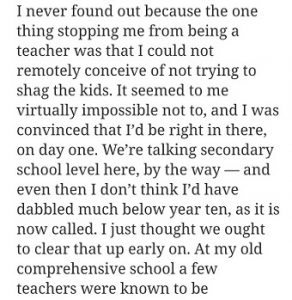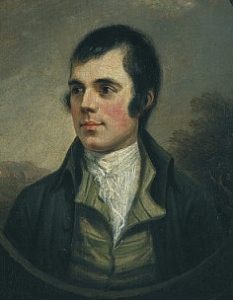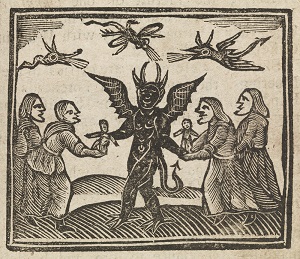
From durham.academia.edu
The other day I discovered that my old alma mater, Peebles High School in the Scottish Borders, had a Wikipedia entry. Near the end of it was a ‘notable alumni’ section. I reacted with a disgruntled “Oh God, him,” when I saw listed among those notable alumni ‘Tim Luckhurst, journalist and academic’.
Minutes later, I headed over to the Guardian’s website to check the news headlines. It seemed a mighty coincidence when I started reading a story under the headline DURHAM HEAD STEPS BACK AFTER CALLING STUDENTS ‘PATHETIC’ AT ROD LIDDLE EVENT and discovered that the head in question, the principal of Durham University’s South College, was none other than Tim Luckhurst – that distinguished journalistic and academic graduate mentioned in Peebles High School’s Wikipedia entry.
During the mid-to-late 1970s, Tim was a few years ahead of me at school. He was a well-kent figure, lanky, curly-haired, lugubrious-faced and sloping around the place in a combat jacket and a T-shirt saying LEGALISE CANNABIS – in those permissive times at Peebles High you weren’t obliged to wear a school uniform. To my mates and I he was known contemptuously as ‘Chairman Mao’. I think he spoke to me just once, at a careers evening being held in the school. I was about to go into a classroom where the affable Atholl Innes, then editor of local newspaper the Peeblesshire News, was dispensing advice to young people who were interested in becoming journalists. Out of that classroom emerged Tim and, to me, he declared emphatically, “Well, I know what I want to be!”
Probably Tim had already resolved to become a journalist and Atholl Innes had been preaching to the already-converted. But I sometimes wonder if he hadn’t made up his mind until entering that classroom and his meeting with Athol Innes had been a moment of revelation – “Yes, newspapers,” Tim had cried, “that’s the life for me!” If the latter is the case, I can only say, “Atholl… You created a monster.”
Incidentally, that Tim had to attend a lowly comprehensive school like Peebles High, up in the windy wilds of North Britain, full of horrible little oiks like myself, still rankles with the man. Writing for the Guardian in 2010 he quoted Ellen Wilkinson, Secretary of State for Education in the post-war British Labour government, as saying of her childhood in non-selective schooling in Manchester: “The top few pupils were intelligent and could mop up facts like blotting paper, but we were made to wait for the rest of the huge classes… We wanted to stretch our minds but were merely a nuisance.” Tim noted sourly, “Thirty years later I experienced comparable misery at my Scottish comprehensive.”

From the Peeblesshire News
I should point out that although it denied Tim the chance to stretch his fabulous mind and soak up facts like a sheet of super-absorbent blotting paper, Peebles High School must have done something for his education. In fact, it was good enough to get him into Cambridge University. At Cambridge, incidentally, according to one Luckhurst-bio I’ve found online, “…he played bass guitar in Tony Tiger and the Frosties.” I know it’s wrong to judge bands by their names alone, but Tony Tiger and the Frosties sound like the most horrible thing to have strutted onstage on the Oxbridge music scene since the early 1970s, when a student band called the Ugly Rumours featured one Tony Blair as their frontman.
I suspect the disdain Tim feels for his alma mater in Peebles is mutual. I recall several years back chatting to one of my old teachers, now a sweet little pensioner, when Tim’s name somehow cropped up in the conversation. The teacher underwent a startling metamorphosis, hands becoming clenched and claw-like, face dark and scowling, and blurted wrathfully, “Tim is just an ARSEHOLE!”
During the 1980s and 1990s, Tim served as press officer for the Labour Party’s then-sizeable cabal of Scottish MPs, including Shadow Secretary State for Scotland Donald Dewar; stood unsuccessfully as a Labour candidate in Roxburgh and Berwickshire in a general election; and worked for the BBC. I’d forgotten that the guy existed until February 2000, when he was announced as the new editor of my Dad’s favourite newspaper, Edinburgh’s venerable and respected Scotsman. Actually, by then, the Scotsman was a lot less respected. It’d been acquired by the Barclay Brothers’ Press Holdings Group and for several years had suffered under the crass stewardship of Andrew Neil, the Group’s editor-in-chief. Tim lasted as Scotsman editor only until May that same year, when he was replaced by Rebecca Hardy, whom I knew from a previous phase of my life too – but that’s a story for another day.

© BBC / From the Guardian
In 2013, Tim and his old boss at the Scotsman, Andrew Neil, had a rammy on twitter. Tim contradicted Neil on something and Neil replied, “And I made you Editor of the The Scotsman. Most stupid decision ever. But at least I fired you six days later.” When Tim countered with, “Would you care to retract that statement, Andrew? It might be wise,” Neil retorted, “Bring it on. And let me pay to straighten your teeth.” For the record, I’ll print what the Evening Standard said about the row: “…Professor Luckhurst was not ‘sacked after six days’ from the Scotsman, as Neil claims, but resigned due to ill health after four months.” And I assume that, following the debacle of his involvement with GB News, Andrew Neil now considers giving Tim the Scotsman’s editorship only his second most stupid decision ever.
Following the Scotsman, Tim spent seven years as political editor of the Scottish edition of the Daily Mail (which, with hindsight, was surely a good fit for him). Then he entered academia with a job as Professor of Journalism at the University of Kent, and then joined Durham University in 2019. Despite having been a one-time backroom operative with the Labour Party, his politics by this time had clearly shifted rightwards. However, I’ll hazard a guess and say he views himself as a moderate, old-school Tory rather than a ranting, frothing, hard-right one. From the occasional glances I’ve had at his twitter feed, he seems impressed neither by Brexit nor by the antics of Boris Johnson.
That said, his moderate Tory-ness stops at the English-Scottish border. One step north of that border and his moderate Tory-ness changes to rabid Unionism. He might once have worked for Donald Dewar, viewed as the ‘father’ of the Scottish devolution settlement and the devolved Scottish parliament, but by 2001 he was demanding in a Guardian opinion piece that Whitehall consider abolishing the parliament, Dewar’s baby: “Scotland needs Whitehall at least to threaten repeal. To demand less in the present climate would be unpatriotic.”
That article was mild, though, compared with one he wrote for the New Statesman that same year. Entitled SCOTLAND RETURNS TO THE DARK AGES, he used it to blame devolution for releasing a tsunami of evils like homophobia, sectarianism, misogyny, racism and, er, the banning of fox-hunting. In the civilised days before devolution unleashed the Scots’ inner beastliness, he wrote, such things had been ‘diluted by the soothing balm of the British state’. Strangely enough, that article is no longer available on the New Statesman’s website.
Meanwhile, his twitter feed has been punctuated by tone-deaf pronouncements on Scotland that surely only appeal to a minority of ultra-Unionist Scots for whom 1690 is as important a year as 1707. I remember him expressing horror at the Scottish government punting a few million pounds towards the promotion of the Gaelic language; or retweeting a video of Ross Thomson – the demented hard-Brexiting, Boris-worshipping Tory ex-MP for Aberdeen South – professing his undying love for the United Kingdom amid a thicket of Union Jacks. I wonder what will happen if Scotland becomes independent. Poor Tim’s head will probably explode like the guy’s head did at the beginning of David Cronenberg’s Scanners (1981).
But onto 2021. Tim landed himself in hot water when, as head of South College at Durham University, he invited his old mate and colleague Rod Liddle to give a speech at a ‘college formal’ event in early December. He and Liddle have known each other since 1985 and worked together on BBC Radio 4’s Today programme. Indeed, in 2010, Tim wrote a Guardian piece in support of Liddle’s candidacy to become editor of the Independent newspaper. This was a prospect that alarmed many readers of the reasonably-liberal Independent because Liddle had earned himself a reputation for being misogynistic, homophobic and racist. Pretty much all the things Tim once accused the Scottish parliament of being.

Liddle is a ‘columnist’ – i.e., gobshite-provocateur – with the Spectator, Sun and Sunday Times and even by the standards of the gobshite-provocateurs that infest the pages of Britain’s mostly right-wing press, forever seeking new ways to upset people, the charge-sheet against him is disproportionately long. Here’s just a few of his low-points. He was a pig towards Labour politician Harriet Harman. (“So – Harriet Harman, then. Would you? I mean after a few beers obviously, not while you were sober.” In his Guardian puff-piece about Liddle, Tim euphemistically described this remark as ‘not gallant’.) He mocked another female Labour MP, Rosie Duffield, for speaking out about verbal abuse and humiliation she’d received from a former partner – “the sobbing and oppressed Rosie ‘MeToo’ Duffield”. He’s complained about the Conservative party not being Islamophobic enough and suggested that elections be held on days when “Muslims are forbidden to do anything on pain of hell.” He’s raved about “black savages”. He’s dismissed Welsh language activists as “miserable, seaweed-munching, sheep-bothering pinch-faced hill-tribes”. He’s explained: “…the one thing that stopped me from being a teacher was that I could not remotely conceive of not trying to shag the kids.” And so on, and so forth.
When Liddle stood up at the event and launched into a speech filled with his predictably reactionary schtick – jokes about sex workers, comments about trans-women having ‘long, dangling penises’ and the charming hypothesis that British colonialism never did anyone any harm because its subjects weren’t intelligent anyway – members of the student audience started walking out. Tim, tigerish about defending everyone’s right to freedom of expression, and everyone’s right to have Rod Liddle inflicted upon them, reportedly shouted at them that they were ‘pathetic’. There’s also video footage in circulation on twitter showing Tim arguing with students after the event. Meanwhile, his wife Dorothy Luckhurst, who might have been slightly over-refreshed at the time, can be seen shouting at those students things like, “I think you are an arse… Arse, arse, arse, arse, arse…! Arse, arse, arse, arse, arse…!”


From twitter.com/RDuskedd
Did Tim honestly believe that he could invite Liddle onto a university campus and there wouldn’t be trouble? He must be a bit thick. Or maybe he was deliberately trying to stir up a hornet’s nest – which, if that was the case, he succeeded in doing.
I’m actually not a fan of censorship by the left, in the form of ‘no-platforming’, ‘cancel culture’ or whatever you want to call it. That’s because I’d always assumed censorship was an instrument used by the right and there was no excuse for the left to use it too. But there’s a time and place for debates where extreme views, offensive to many, can be aired and argued with. And the event at South College was clearly neither the time nor place. For one thing, the attendees had paid ten pounds a head to be there and hadn’t been warned in advance that the entertainment included Rod ‘shag the kids’ Liddle. If I’d been present, I’d have walked out too when Liddle started spewing his crap at me – just as I’d have done in the 1980s or 1990s if I’d bought a ticket for what I expected to be a mild-mannered comedy night and then Bernard Manning had lumbered on stage and started cracking jokes about ‘darkies’ and ‘poofs’ and ‘Paddies’. And incidentally, isn’t walking out a legitimate form of expression in itself? Especially when, as with Liddle’s audience, you don’t have access to a microphone.
It’s fascinating how Tim, and the whole media / political establishment that he’s a member of, claim to be champions of free speech when there’s a danger that people might stop listening to right-wing establishment opinions. Yet it’s pretty difficult in Britain, if you interact with the media in anyway at all, not to be assailed relentlessly by right-wing opinions. There’s the front-page headlines of reactionary rags like the Sun, Mail and Express screaming at you daily from the newsstands. There’s the now completely cowed and broken-backed BBC parroting the right-wing agenda of the press when it does its morning newspaper round-ups. There’s a seemingly endless parade of right-wing pundits from Nigel Farage downwards (and Farage is pretty far down already) getting platforms on TV news channels. If Tim and co. are so desperate about promoting freedom of expression and making people experience views they wouldn’t otherwise hear, shouldn’t they be trying to expose hardcore readers of the Sun, Mail and Express to the opinions of Owen Jones, George Monbiot, Laurie Penny, John Pilger, Naomi Klein and Noam Chomsky? Well, they should, but I’m not holding my breath.
Currently, following a storm of Liddle-related protests, Tim has been parked on the naughty step at Durham University while his employers decide what action, if any, should be taken against him. But even if he’s shown the door, I’m sure that a lucrative future awaits him at one of Britain’s countless right-wing news and / or opinion outlets, which will take him to its bosom as a martyr to the cause of freedom of (right-wing) speech and as a blameless victim of horrible, lefty, woke, cancel culture.
Now that his old nemesis Andrew Neil has left the building, I could even see him ending up at GB News. He could form a double act with Neil Oliver, where they both whinge and gurn about the ghastliness of modern-day Scotland under the leadership of Nicola Sturgeon and how the Scots need their uncivilised natures to be ‘diluted by the soothing balm of the British state’. Meanwhile, Tim’s better half could get a gig there as well. Perhaps Talking Pints with Nigel Farage?






